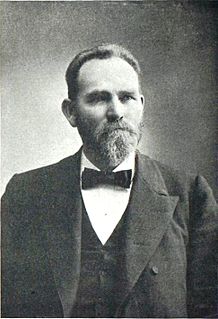A Quote by Herbert Hoover
The worst evil of disregard for some law is that it destroys respect for all law.
Related Quotes
When you say there's too much evil in this world you assume there's good. When you assume there's good, you assume there's such a thing as a moral law on the basis of which to differentiate between good and evil. But if you assume a moral law, you must posit a moral Law Giver, but that's Who you're trying to disprove and not prove. Because if there's no moral Law Giver, there's no moral law. If there's no moral law, there's no good. If there's no good, there's no evil. What is your question?
No society can exist if respect for the law does not to some extent prevail; but the surest way to have the laws respected is to make them respectable. When law and morality are in contradiction, the citizen finds himself in the cruel dilemma of either losing his moral sense or of losing respect for the law, two evils of which one is as great as the other, and between which it is difficult to choose.
The civil magistrate cannot function without some ethical guidance, without some standard of good and evil. If that standard is not to be the revealed law of God (which, we must note, was addressed specifically to perennial problems in political morality), then what will it be? In some form or expression it will have to be the law of man (or men) — the standard of self-law or autonomy.
Celestial marriage is for the fullness of the glory of god. It is the crowning glory. A man has no right to one wife unless he is worthy of two.... There is no provision made for those who have had the chance & opperternity and have disregarded that law. Men who disregard that law are in the same situation as if they broke any other law. they are transgressors.
The law is equal before all of us; but we are not all equal before the law. Virtually there is one law for the rich and another for the poor, one law for the cunning and another for the simple, one law for the forceful and another for the feeble, one law for the ignorant and another for the learned, one law for the brave and another for the timid, and within family limits one law for the parent and no law at all for the child.
There's no definition of blasphemy in this law. Then this only protects the one religion, whether we agree or not. I as a Christian believe we don't need any law to protect Jesus Christ because the law cannot protect the respect of Jesus Christ. The heart and mind are the ones that can protect and give respect to Christ.
Struggling against the legalism of simple obedience, we end by setting up the most dangerous law of all, the law of the world and the law of grace. In our effort to combat legalism we land ourselves in the worst kind of legalism. The only way of overcoming this legalism is by real obedience to Christ when he calls us to follow him; for in Jesus the law is at once fulfilled and cancelled.

































